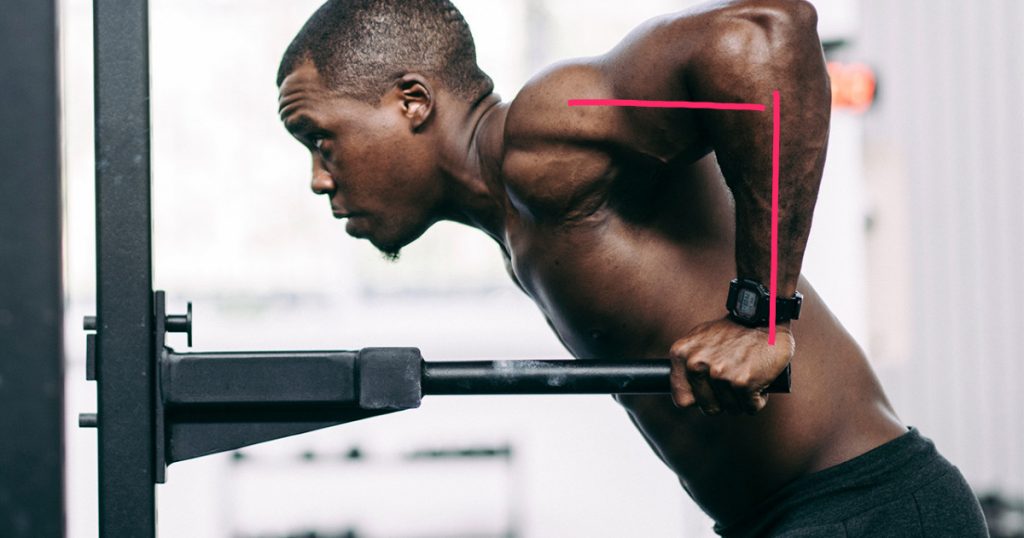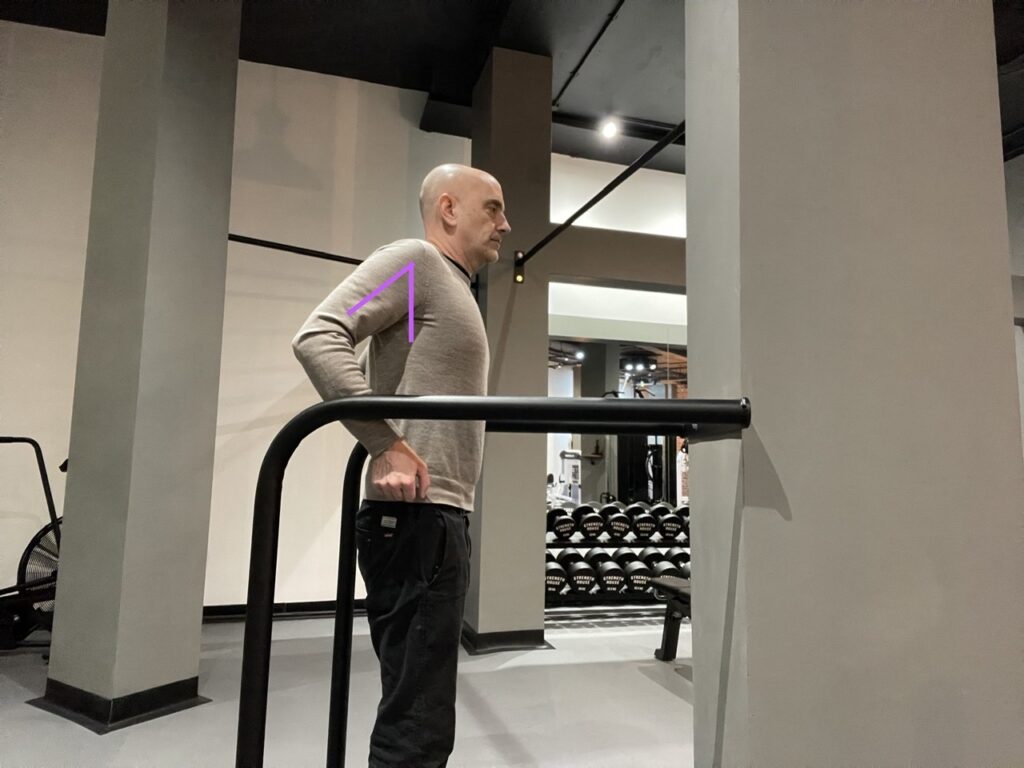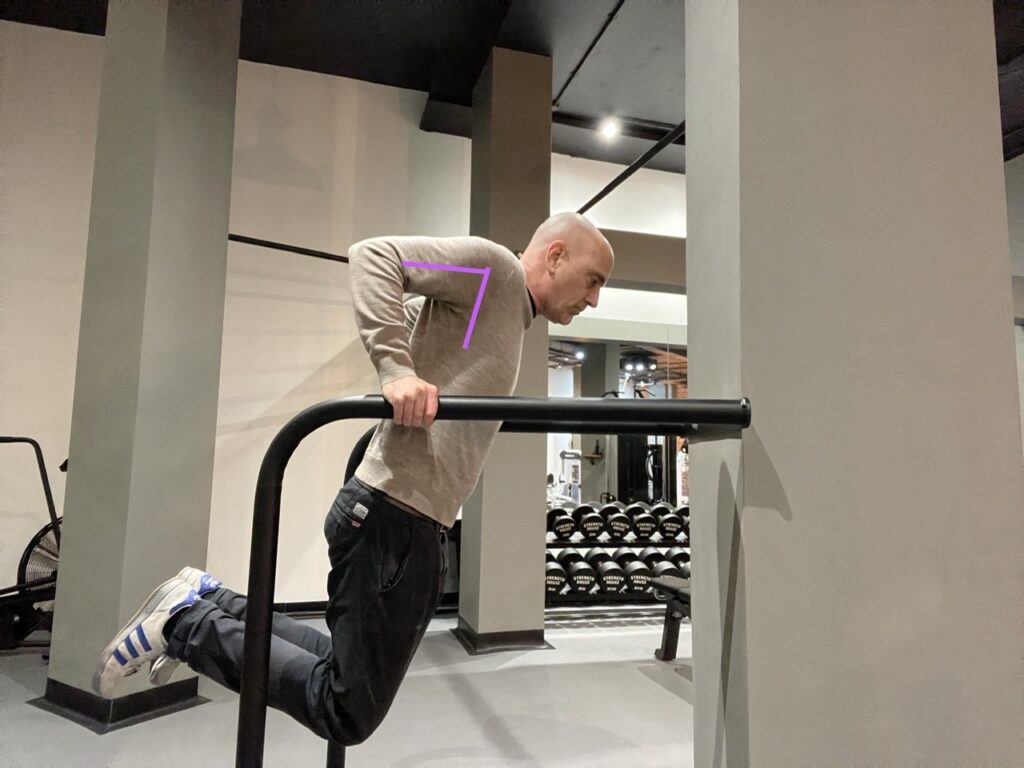In this post we’ll look at why tricep dips are bad for your shoulders and show how they don’t really challenge your triceps either.
Following on from my recent post on what must be the worst exercise in the gym, here’s the exercise that came in a close second, the tricep dip.
The first issue with this exercise is that it doesn’t really work your triceps as its name suggests.
Yes really.
As you lower yourself into the dip, the moment arm and therefore the effort requirement increases not at the elbow, but at the shoulder (glenohumeral joint).
This is illustrated in the image below. The line of force (vertical line) travels straight down through the elbow. There is no moment arm (horizontal line) to the elbow whatsoever.
This makes the exercise primarily a challenge to the anterior deltoid.

Try this for a second to feel the exercise without the influence of your body weight.
Lay down on a bench and perform a narrow dumbell press, keeping your forearms perpendicular (at 90 deg) to the floor throughout.
Feel any tricep action? No right.
Is the front of your shoulder kicking off? Exactly.
Why tricep dips can cause shoulder issues
Not only does this exercise have the wrong name, it’s also potentially damaging to the part of the shoulder it does challenge.
Most people go way past their active range of shoulder extension in the bottom position of the exercise.
Take a look at my active range of shoulder extension below (distance between the two purple lines).

Now take a look at where most people end up in a dip. Notice the difference?

The challenge is not on the anterior deltoid any more, but rather on the passive structures of the joint. Namely the shoulder capsule and the Coracohumeral ligament.
This is important because ligaments that are regularly stretched, have the potential to alter their properties in a process known as creep.
Essentially they may become more lax. And laxity as you may know is not a good thing. It makes the shoulder more unstable and prone to injury.
Safer, more effective alternatives to dips
If your goal is to challenge your triceps, then a cable tricep extension with long handles is a good choice.
The issue with using a shorter rope for this exercise is discussed in detail in this video.
If you’re using dips to target pec major, you would be better served by using an exercise that adds more abduction to the shoulder such as a chest press. This gives the pec more opportunity to contribute.
Summary
Whilst I don’t like to call any exercise bad, there are some that offer few benefits and have greater risks associated with them.
The tricep dip is certainly one of those and best avoided.